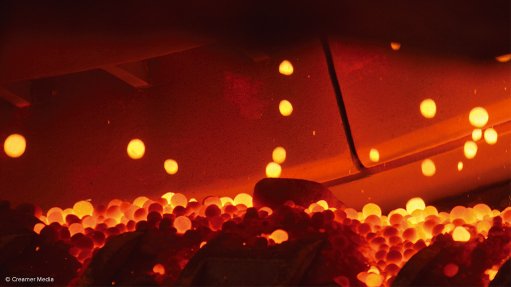Sugar industry reduces haulage costs by R38m
The South African sugar cane industry should be congratulated on the progress it has made over the past ten years in improving the efficiency of its haulage system in line with the South African National Roads Agency’s Road Traffic Management System (RTMS), says South African Cane Growers’ Association sugar RTMS committee chairperson Peter Lyne.
The cost of delivery of sugar cane to mills by truck improved for the sixth consecutive year in 2016, with an estimated 24 000 fewer trips having been undertaken, resulting in a saving of about R38-million in transport costs for the industry.
The RTMS is an industry- led self-regulation scheme that encourages consignees, consignors and transport operators engaged in the road logistics value chain to implement a vehicle management system that will preserve road infrastructure, improve road safety and increase the productivity of the logistics value chain. The scheme also supports the Department of Transport’s (DoT’s) national logistics strategy.
Maximum mass limits of vehicles on public roads are determined by the Road Traffic Act No 93 of 1996, which also determines the powers of traffic officers regarding the enforcement of those mass limits.
However, more than simply complying with the rules of the Act, Lyne points out that the RTMS also helps to ensure the optimal loading of trucks, or loading accuracy, which is imperative for avoiding unnecessary costs and risks when transporting stock, such as sugar cane. An overloaded vehicle will have a higher fuel consumption rate and increased maintenance costs, with a higher risk of accidents because of the extra load, while also causing damage to roads. Alternatively, a truck not carrying a full load will make more trips than are necessary to deliver stock.
Together, the South African Cane Growers’ Association and the KwaZulu-Natal DoT have played a pivotal role in supporting the implementation of the RTMS in the sugar cane industry by enlisting the support of industry stakeholders and ensuring that the programme maintains momentum. The association has overseen the implementation of strategies by sugar cane growers to ensure self-regulation when it comes to overloading or underloading trucks in a continued bid to improve the productivity of the sugar cane transport sector.
“Huge progress has been made in the sugar cane haulage system, which now stands as a fine example of what can be achieved through enthusiastic industry participation. “Overloading has essentially been eliminated, with overloads forming only 0.1% of all deliveries to mills last year, compared with the 32% they accounted for before the project began. Underloading has also been significantly reduced,” says Lyne.
He explains that sugar cane trucks are required to cross a weighbridge when they deliver their loads to mills and each mill area has a penalisation strategy for overloaded vehicles. Overloaded vehicles can, moreover, face fines from traffic officers.
Sugar cane growers can ensure optimal loading by installing load cells or fitting trucks with weighing devices that provide an accurate reading of the load’s weight, or by monitoring data from weighbridges to gain insight into the average amount of cane that should be loaded.
“Once the grower has an idea of how much sugar cane should be loaded for each trip, it all boils down to improved management to ensure that the cane is appropriately loaded . . . to avoid fines and maximise productivity in the transport system.”
Loading accuracy increased for the third consecutive year last year, with only 3.5% of deliveries being dispatched from sugar cane farms overloaded. Lyne concludes that Pongola, in KwaZulu-Natal, was a stand-out in this instance, with only 0.2% of all deliveries from the region considered overloaded.
Article Enquiry
Email Article
Save Article
Feedback
To advertise email advertising@creamermedia.co.za or click here
Press Office
Announcements
What's On
Subscribe to improve your user experience...
Option 1 (equivalent of R125 a month):
Receive a weekly copy of Creamer Media's Engineering News & Mining Weekly magazine
(print copy for those in South Africa and e-magazine for those outside of South Africa)
Receive daily email newsletters
Access to full search results
Access archive of magazine back copies
Access to Projects in Progress
Access to ONE Research Report of your choice in PDF format
Option 2 (equivalent of R375 a month):
All benefits from Option 1
PLUS
Access to Creamer Media's Research Channel Africa for ALL Research Reports, in PDF format, on various industrial and mining sectors
including Electricity; Water; Energy Transition; Hydrogen; Roads, Rail and Ports; Coal; Gold; Platinum; Battery Metals; etc.
Already a subscriber?
Forgotten your password?
Receive weekly copy of Creamer Media's Engineering News & Mining Weekly magazine (print copy for those in South Africa and e-magazine for those outside of South Africa)
➕
Recieve daily email newsletters
➕
Access to full search results
➕
Access archive of magazine back copies
➕
Access to Projects in Progress
➕
Access to ONE Research Report of your choice in PDF format
RESEARCH CHANNEL AFRICA
R4500 (equivalent of R375 a month)
SUBSCRIBEAll benefits from Option 1
➕
Access to Creamer Media's Research Channel Africa for ALL Research Reports on various industrial and mining sectors, in PDF format, including on:
Electricity
➕
Water
➕
Energy Transition
➕
Hydrogen
➕
Roads, Rail and Ports
➕
Coal
➕
Gold
➕
Platinum
➕
Battery Metals
➕
etc.
Receive all benefits from Option 1 or Option 2 delivered to numerous people at your company
➕
Multiple User names and Passwords for simultaneous log-ins
➕
Intranet integration access to all in your organisation
















